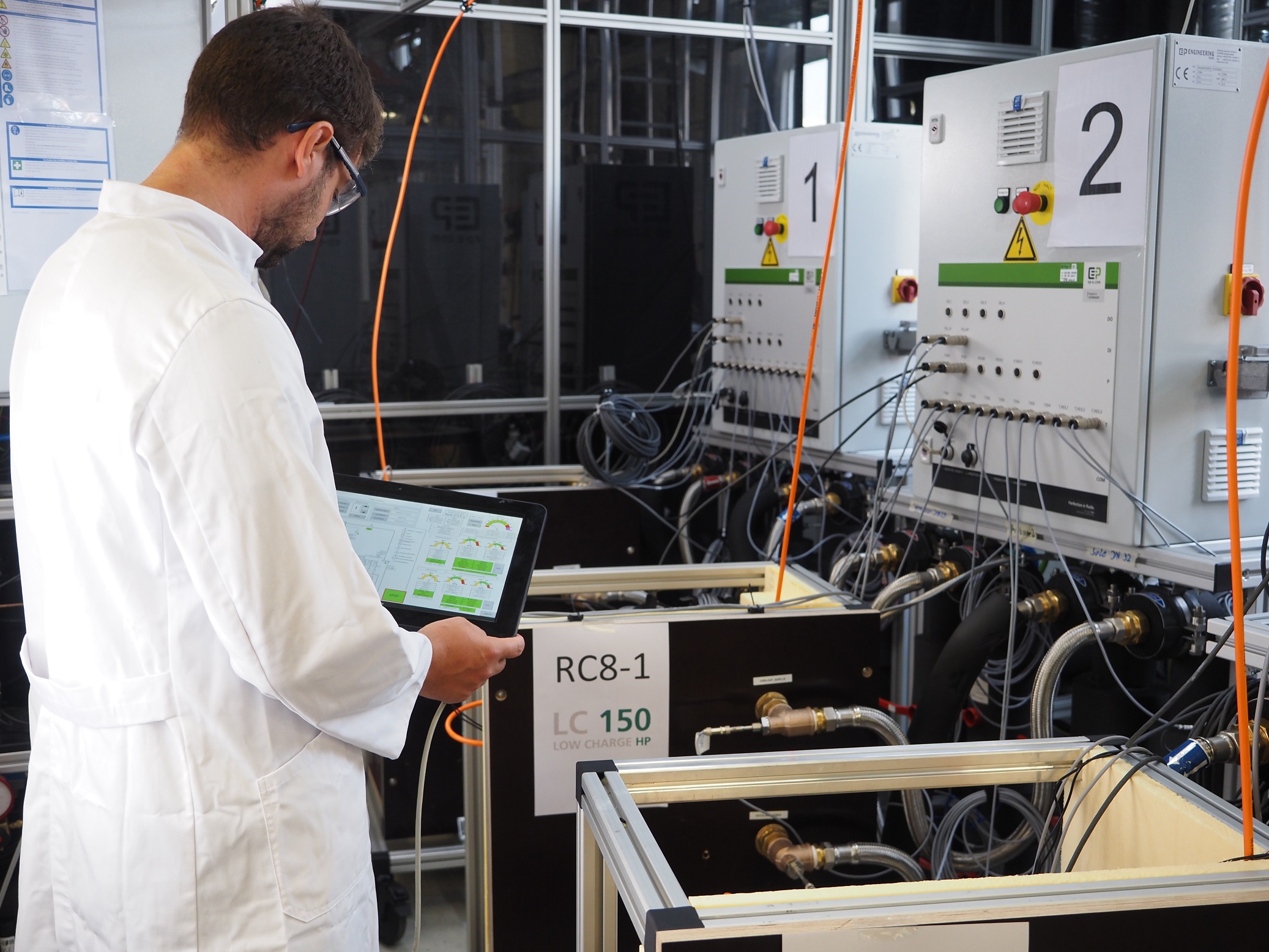| Duration: | 01/2023 - 12/2025 |
| Contracting Authority/ Sponsors: | Federal Ministry for Economic Affairs and Climate Action (Förderkennzeichen 03EN4046) |
| Webseite: | LC R290 |
| Project Focus: |
LCR290 – Development of Heat Pump Solutions with Propane for the Replacement of Gas and Oil Appliances

In the project »LCR290 - Low charge HP solutions«, the Fraunhofer ISE is designing possible solutions for replacing gas and oil heating systems in existing multi-family houses – from central heat generators to the replacement of floor heating systems. For this purpose, heat pumps are to be used which rely on the natural and climate-friendly refrigerant propane (R290). Fraunhofer ISE has founded a project consortium with companies from the heating sector and the housing industry for practical as well as rapid implementation.
The project budget is seven million euros and is funded by the Federal Ministry for Economic Affairs and Climate Action.
The housing industry needs standardized heat pump solutions for replacing gas and oil heating systems for all applications; after all, heat pumps will be the dominant heating technology in the energy system of the future. Propane has become a recognized refrigerant solution for the heat pump industry and is now widely used in externally installed heat pumps. Fraunhofer ISE is currently researching viable solutions, especially for indoor applications. Together with the heating industry and the housing industry, Fraunhofer ISE intends to develop heat pump solutions for three fields of application:
- Floor heating systems
- central heating systems installed indoors
- higher performance classes for externally installed heat pumps.
The new collaborative project »LCR290 - Low charge HP solutions« aims to close these gaps. The project is funded by the German Federal Ministry of Economics and Climate Protection. The budget is seven million euros.
If heat pumps are to be operated with propane as a replacement for gas floor heating systems or also gas and oil heating systems in the basement, special safety requirements must be observed for filling quantities above 150 grams. In the preliminary project »LC150« it has already been demonstrated that a heating capacity of 7 to 10 kilowatts can be achieved with less than 150 grams of the refrigerant propane. This is the basis for implementation as a floor heating system. Within the framework of the new project, suitable storage and source concepts are being developed for this purpose. To this end, solutions for connection to the hydraulic and source system as well as suitable control approaches will be devised and demonstrated in the laboratory with the support of heat pump manufacturers and the housing industry.
For the replacement of the central heating in the basement, heat pumps with a higher capacity are to be developed. Here, too, results from the »LC150« project will be used to transfer refrigerant reduction to larger capacities. In addition, concepts for interconnection and control of multiple heat pumps will be investigated and widely implementable safety concepts will be identified and tested.
Externally installed heat pumps of higher capacity are also optimized with a focus on refrigerant reduction and defrosting and evaluated by standardized safety tests. The goal is to be able to implement larger capacities with the same footprint and safety zone through refrigerant reduction and improved defrosting, thus facilitating their use in urban areas.
The development is being driven with the help of a platform project accompanied by an advisory board, which allows broadly supported solutions at high speed. Manufacturers can incorporate these solutions into their own product developments or process them further in cooperative ventures. The higher volumes thus possible offer significant cost-cutting potential and can open up additional synergies and increase the competitiveness of manufacturers.
Since system solutions are being developed in this project, the housing industry is also involved as a partner. The housing industry contributes its specific constraints and requirements directly to the development and will participate in customized system solutions. The direct communication between several heat pump manufacturers and the housing industry enables solutions to be developed in a practice-oriented manner and to be implemented more quickly, which in turn accelerates the overall ramp-up to higher unit numbers.